A Final Thought
But for this to be true, it can't be easy to get to the Olympics.
Once upon a time, it was much easier to get to the Games, at least for some. A Haitian athlete ran the 10,000-metre race in 42 minutes at the 1976 Montreal Olympics. No doubt there were other examples of athletes coming to the Games who were nowhere in the same league.
Then came Eddie "the Eagle" Edwards. During one interview I said I had a problem with him, but, truth be told, there was nothing wrong with Edwards, his attitude or his desire to participate. His heart was in the right place. But he shouldn't have been at the Olympics. Other ski jumpers complained that he was making a mockery of the sport. (More likely: they were upset that he was getting all the attention while they trained for years in almost complete obscurity.) The problem wasn't him, it was us; but it was still a problem.
However much we loved the stories of Eddie "the Eagle" Edwards, Eric "the Eel" Moussambani, or the Jamaican bobsledders, they helped reinforce an image of last-place finishers at the Olympics that was unfair to everyone else. Almost every time I was interviewed by a reporter, it was stories like these that they were looking for. These stories make for great copy, but they're in no way representative, and in some ways the distortion they generate can be harmful.
Imagine you're an athlete who's been training at your sport for years. Finally, you manage to make it to the Olympics. You compete, and, for whatever reason -- you're a few seconds behind, or you're fighting the flu, or the wax on your skis wasn't right, or you plain goofed for the first time in years -- you end up in last place. You're in the elite in your field; you've put your life into this sport. And now you're going to get lumped in the same category with a guy who nearly drowned in the pool.
The problem with Edwards, Moussambani and other "novelty acts" (as I've called them) is that they made getting to the Olympics look easy, and coming in last a joke. They made it easier for us to devalue participation.
So now it's harder to get to the Games. In some sports there are hard quotas. Even in the most accessible sports at the Winter Games -- alpine and cross-country skiing -- the basic quota that allows one athlete from each sex to participate still necessitates that they compete in the World Cup circuit. You don't have to be competitive, necessarily, but you do have to be a bona fide competitor.
Some might argue that, in keeping Eddie the Eagle away from the Games, something wonderful has been lost. That may be true: there's something to be said about a narrative of someone gamely, but hopelessly, giving it his best shot. But on the other hand, if we want to say that making it to the Olympics is meaningful, and that even last-place finishers have nothing to be ashamed of, then we have to make it hard to get there.
That's essentially what the IOC has done, and it's why my coverage of last-place finishers over two Olympics has featured accidents, injuries, and occasional great stories, but very little in the way of giving my readers someone to laugh at. Which was the point.
This wraps up my coverage of the last-place finishes at the Torino Winter Olympics. I hope you enjoyed it.
(For previous essays of this sort from the Torino Olympics, see All Fall Down and The Hard Bigotry of High Expectations. For day-by-day coverage, other features and older material from the 2004 Athens Olympics, see the calendar on the right-hand side of this page.)
Labels: analysis, torino 2006
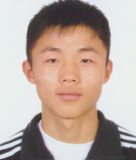 Other than the gold-medal game in men's hockey, the last event in these Winter Games is in cross-country skiing: the
Other than the gold-medal game in men's hockey, the last event in these Winter Games is in cross-country skiing: the 

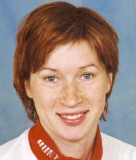 Speed Skating: One event left -- the
Speed Skating: One event left -- the 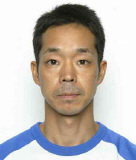 Biathlon: The results for this morning's biathlon events are already in, so I'll report them now before the deluge of later events. In the
Biathlon: The results for this morning's biathlon events are already in, so I'll report them now before the deluge of later events. In the  Alpine Skiing: The last women's event in alpine skiing was the
Alpine Skiing: The last women's event in alpine skiing was the  Speed Skating: In the penultimate long-track event, the gruelling
Speed Skating: In the penultimate long-track event, the gruelling 

 Snowboarding: The last snowboarding event is the
Snowboarding: The last snowboarding event is the 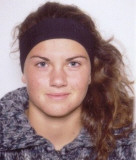 Cross-country Skiing: The men's and women's sprint events ran today; I'm assigning the DFL to the slowest time in the qualification round. The first 30 skiers qualified for the quarterfinals in each event. In the
Cross-country Skiing: The men's and women's sprint events ran today; I'm assigning the DFL to the slowest time in the qualification round. The first 30 skiers qualified for the quarterfinals in each event. In the 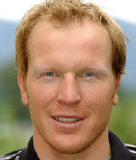 Snowboarding: In the men's parallel giant slalom, I'm going with the last-place result in the
Snowboarding: In the men's parallel giant slalom, I'm going with the last-place result in the 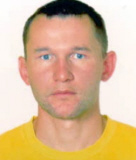 Alpine Skiing: As many competitors -- 41 -- failed to finish (DNF, DNS or DQ) in the
Alpine Skiing: As many competitors -- 41 -- failed to finish (DNF, DNS or DQ) in the 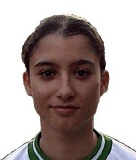 In the
In the 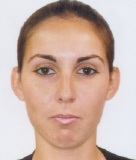 Speed Skating: 25-year-old Romanian skater
Speed Skating: 25-year-old Romanian skater 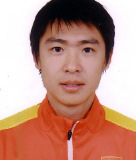 Speed Skating: In the
Speed Skating: In the 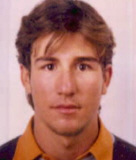 Alpine Skiing: In the
Alpine Skiing: In the  Biathlon: In the
Biathlon: In the  Alpine Skiing: The downhill portion of the women's combined event has been postponed until tomorrow due to bad weather.
Alpine Skiing: The downhill portion of the women's combined event has been postponed until tomorrow due to bad weather. Cross-country Skiing: In case you're wondering, no, the skiers from Brazil, Kenya and Ethiopia did not finish last in the
Cross-country Skiing: In case you're wondering, no, the skiers from Brazil, Kenya and Ethiopia did not finish last in the 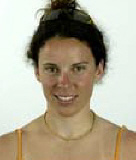 Snowboarding: The finals for the
Snowboarding: The finals for the 
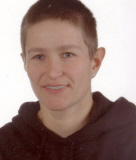
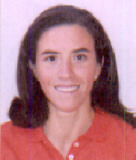 Biathlon: Chilean competitor
Biathlon: Chilean competitor  Snowboarding: In the
Snowboarding: In the  Freestyle Skiing: In
Freestyle Skiing: In 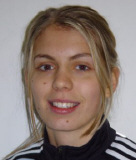 Short Track Speed Skating: The
Short Track Speed Skating: The  Luge: In the
Luge: In the 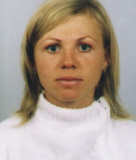
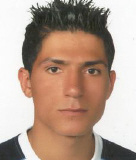
 Snowboarding: 18-year-old Japanese boarder
Snowboarding: 18-year-old Japanese boarder  Luge: An extremely slow third run put
Luge: An extremely slow third run put 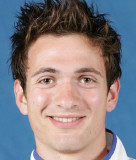 Short Track Speed Skating is a little trickier to report on because it's based on heats rather than times: it frequently occurs that a winning time in one heat is slower than the slowest time in another. Your time, in other words, doesn't matter insofar as the standings are concerned. So I'm making an executive decision to post the slowest time overall, whether it comes in the heats, semis or finals. (If nothing else, they record world-record times in this sport, don't they?) Anyway, that's a long enough prologue to some actual results, to wit, those from the men's 1,500-metre individual event (results:
Short Track Speed Skating is a little trickier to report on because it's based on heats rather than times: it frequently occurs that a winning time in one heat is slower than the slowest time in another. Your time, in other words, doesn't matter insofar as the standings are concerned. So I'm making an executive decision to post the slowest time overall, whether it comes in the heats, semis or finals. (If nothing else, they record world-record times in this sport, don't they?) Anyway, that's a long enough prologue to some actual results, to wit, those from the men's 1,500-metre individual event (results: 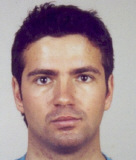 Alpine Skiing: Romanian skier
Alpine Skiing: Romanian skier  In the
In the  Nordic Combined: The Individual Gundersen event works like this: your score from two ski jumps determines how far behind the leader you start in the 15-km cross-country ski race. An athlete who's a strong skier but a weak jumper would start further behind but catch up during the race, and vice versa. It all takes place in a single day, and your result is determined by the race result. After
Nordic Combined: The Individual Gundersen event works like this: your score from two ski jumps determines how far behind the leader you start in the 15-km cross-country ski race. An athlete who's a strong skier but a weak jumper would start further behind but catch up during the race, and vice versa. It all takes place in a single day, and your result is determined by the race result. After  Freestyle Skiing: In
Freestyle Skiing: In 
